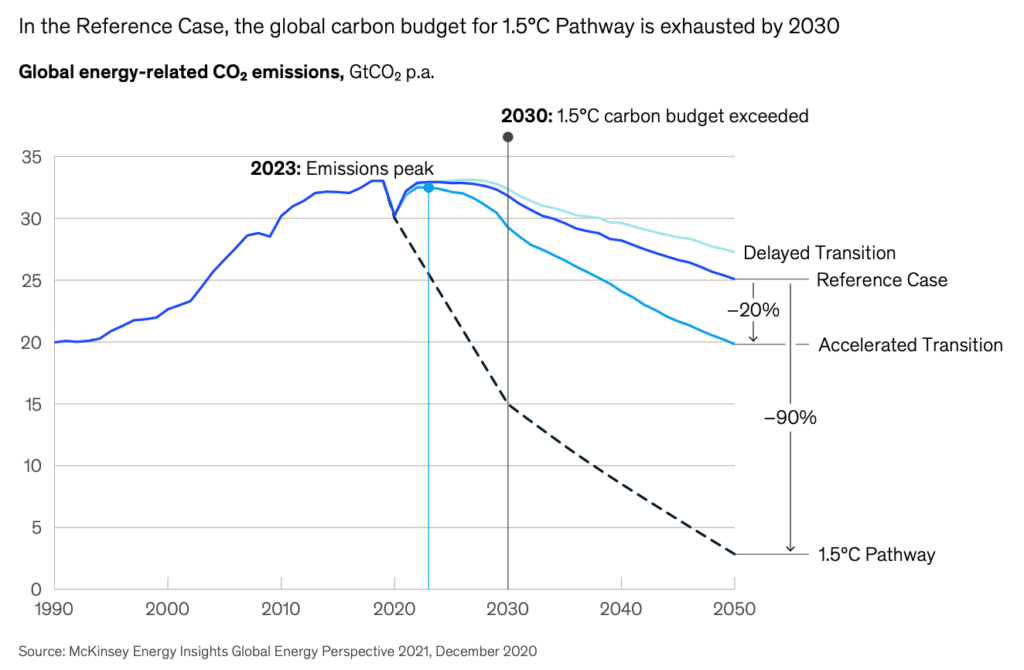COVID-19 has triggered a drop in global CO2 emissions of around 7 percent. In the Reference Case, energy-related CO2 emissions peak by 2023, followed by a steady decline of approximately 25 percent until 2050. In the Accelerated Transition scenario, emissions by 2050 are 20 percent lower than in the Reference Case, reflecting a more rapid shift to renewable sources for power generation as well as an accelerated uptake of new, lower-carbon technologies in end-use segments, such as road transport and industry. However, Reference Case CO2 emissions, and even Accelerated Transition emissions, remain far from the 1.5ºC Pathway. CO2 emissions by 2050 need to drop by 90 and 85 percent versus projected levels, respectively, to comply with the requirements for the 1.5ºC Pathway. In fact, CO2 emissions need to show an annual decrease similar to the drop in 2020 for the next 30 years to reach the target by 2050.
Source: Global Energy Perspective 2021, McKinsey study

